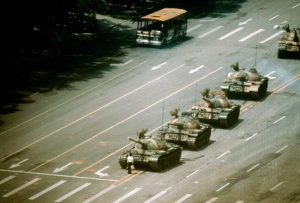When information on a topic is broadly suppressed, what are we writers supposed to do? There are two easy answers, both error-prone. One is to reject all claims that there’s suppression and call them a “conspiracy theory.” The other is to assume that whatever is being suppressed is true.
Let’s look at the hypothesis that COVID-19 originated in a lab in Wuhan and somehow escaped into the population. I don’t know if that’s true, but the circumstances make it a possibility worth investigating. There have been many attempts to discourage an examination of the question. A Vanity Fair article by Katherine Eban summarizes the battle.
Key points: The Wuhan Institute of Virology is China’s leading institution for studying coronaviruses. The Chinese government has been less than open about the situation. It suppressed early reports about the outbreak, removing them from media as “malicious rumors.”
In China’s defense — sort of — suppressing information is its reflex response to any inconvenient situation. Pretending an outbreak of disease wasn’t happening could have been just standard operating procedure. But it’s an item to consider.
The Lancet published a piece denouncing the lab-leak hypothesis. It could have been dictated by the Chinese Ministry of Truth:
We sign this statement in solidarity with all scientists and health professionals in China who continue to save lives and protect global health during the challenge of the COVID-19 outbreak. We are all in this together, with our Chinese counterparts in the forefront, against this new viral threat. …
We stand together to strongly condemn conspiracy theories suggesting that COVID-19 does not have a natural origin.
The issue was not “all scientists and health professionals in China” but the events in a particular facility. The wording implies that the hypothesis is a claim that the entire Chinese scientific community conspired to conceal what happened. But a neurology researcher in Beijing would be in no better a position than we are, and probably in a worse one, to know what happened in a virology lab in Wuhan.
Until recently, Facebook’s policy was to remove all claims that COVID-19 is “man-made or manufactured.” It recently revoked the policy. Facebook had decided what the truth of the matter was and put an end to discussion. If you relied on Facebook for your research (a really bad idea, in any case), you might think no one was presenting arguments for the lab-leak hypothesis.
(Another side note: The theory that the virus leaked from a lab and that it was a manufactured virus aren’t the same. A new but naturally occurring virus could have escaped the lab while under study.)
Even some reports of Facebook’s lift of its ban are misleading. One clickbait headline says “Facebook Is Giving the Green Light to Unsupported COVID Origin Theories.” The actual article barely mentions Facebook, and the headline falsely implies that lab-leak claims with supporting evidence had previously been permitted.
 Some major American corporations are in the habit of groveling to the government of China, which controls their access to a huge market. For a while on June 4, Bing was returning no results for an image search on “tank man,” a search term often used to find the famous picture of a Chinese man who stood in front of a column of tanks at Tiananmen Square. Microsoft claimed, “This is due to an accidental human error.” It was pure coincidence that this happened on the anniversary of the Tiananmen Square massacre. Of course we believe you, Microsoft.
Some major American corporations are in the habit of groveling to the government of China, which controls their access to a huge market. For a while on June 4, Bing was returning no results for an image search on “tank man,” a search term often used to find the famous picture of a Chinese man who stood in front of a column of tanks at Tiananmen Square. Microsoft claimed, “This is due to an accidental human error.” It was pure coincidence that this happened on the anniversary of the Tiananmen Square massacre. Of course we believe you, Microsoft.
How to deal with poisoned information
Getting back to the original question: What does a poor writer do in a situation like this? It could be years, if ever, before we know for sure how the virus got into the population. Many sources have reached their own conclusions, based more on their politics than on examination of the evidence.
Sometimes the only thing you can do is admit you don’t know. Ignorance is not evil. Willful ignorance and pretended knowledge are the problems. Articles that acknowledge uncertainty where it’s all that’s available are usually more reliable than ones that muster the strongest language in support of a position and ignore counter-arguments.
Consider the reliability of any source. Avoid echo chambers and be wary of confirmation bias. Look for sources with opposing views. Beware of articles that rely on paraphrases or two-word quotations. The more sourced information you can find, the better your chances are of avoiding serious errors.
Good sense, and not always obvious, especially on emotionally charged subjects.